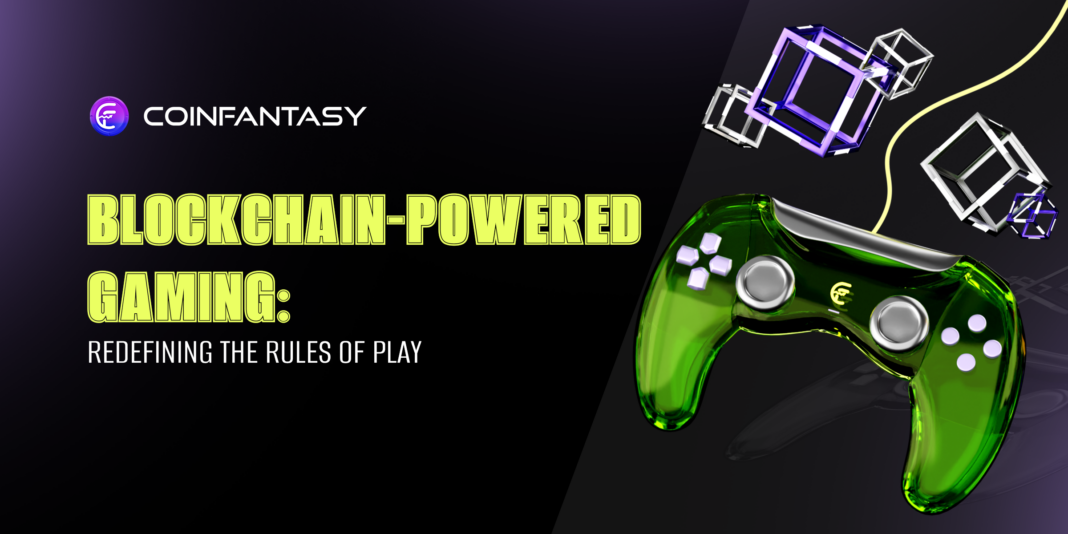Blockchain has emerged as a powerful technology that is transforming many businesses in today’s quickly changing technological landscape. Gaming is one area of business where blockchain technology is transforming the gaming environment with its decentralized and transparent structure. In this new era, gameplay creation, and earnings promise a more immersive gaming experience for players and investors globally.
“The blockchain-based gaming business is expected to increase rapidly, reaching $435 billion by 2028. This equates to a compound annual growth rate (CAGR) of almost 12.1% from 2022 to 2028.”
By all means, you can find out what makes blockchain a true game changer and what the future holds for the blockchain-powered gaming industry. Let’s dive in.
Ownership of Digital Assets in the Blockchain-Powered Gaming
The idea of digital asset ownership is not new. In the early days of computer gaming, users controlled assets such as characters, in-game assets, and occasionally even virtual territory. However, today’s landscape makes this proposition much more appealing, particularly with the incorporation of blockchain technology. This breakthrough enables the trade of digital assets outside of the game itself, giving players unusual control over their controls.
Equally important is that, such control has serious ramifications in blockchain-powered gaming. In addition to controlling characters and objects, it gives players a sense of ownership. Players gain control over their digital assets, allowing them to use them as they see fit, free from developer-imposed limits. This autonomy allows them to trade, sell, or give away their assets to other players.
By all means, the evolution is both fascinating and thought-provoking, raising concerns about the impact of digital asset ownership on the overall gaming experience, and the implications for game producers.
The Significance of Digital Assets in the Blockchain Gaming Ecosystem
In the context of play-to-earn games, the term “digital assets” refers to a wide range of virtual objects that have value for players. These can range from simple in-game assets like health potions or weaponry to more complex aspects like entire game characters, virtual territory, or player-created worlds.
As a result in gaming progresses, digital assets will become increasingly important to the whole experience. The advent of blockchain technology and the rise of games with virtual economies are transforming digital assets from a supplementary feature to a critical component of player involvement.
Key effects of digital assets include:
Personalization: It allows players to customize their game experience by selecting character equipment, creating unique environments with virtual land, and gaining uncommon things. This customization increases depth and interest by reflecting the player’s decisions and efforts.
Development Indicators: Valuable or unusual digital goods frequently represent talent or achievement, providing a tangible sense of accomplishment and development.
How is blockchain technology transforming the gaming industry?
By solving the problems that the gaming industry faces today, blockchain technology has the potential to completely transform the sector. Here are several examples:
Boosting security in the gaming sector:
Hackers won’t be able to obtain server-wide data because of the blockchain’s decentralization and extremely powerful data encryption methods. As a result, business owners and game developers may work in a safe setting and produce better work. A decentralized blockchain network never take down by hackers since there are no servers to attack.
Better control over resource exchanges for incentives:
In general, blockchain-based gaming networks are unchangeable. This guarantees that game series and programs that are network-launched in the future will never change. Players and developers can construct resource-rich games and applications, update game versions, and get rewards by employing blockchain gaming mining techniques. They can now contribute and receive tokens as a result, and it improves user experience.
Improving the estimation of intangible asset value:
Certain statistics indicate that aficionados will cherish intangible digital collectibles when a fun blockchain-based game is created. In a captivating blockchain game, gamers are willing to exchange immaterial digital assets for real money. Without a doubt, combining cryptocurrencies with captivating and amusing video games will boost investment.
Better payment options:
Cryptocurrencies are extremely safe and anonymous. The gaming business has previously seen multiple breaches of large networks that exposed and sold credit card information to customers online. Payments are made in blockchain gaming applications using local cryptocurrency Coins or tokens that are similar, improving the user experience.
Conclusion
In summary, blockchain technology is changing the gaming industry and opening up new opportunities for both players and investors. Also, blockchain in gaming is changing the laws of play by giving players actual ownership, decentralization, and creative gameplay mechanics. Acceptance of these changes will be crucial for players and investors who want to prosper in this dynamic ecosystem as the industry continues to transform.
In this blog, we bring blockchain-powered gaming to the next level. Let’s consider the possibilities, address the limitations, and reveal the real-world challenges shaping its future. Click here to learn more.

